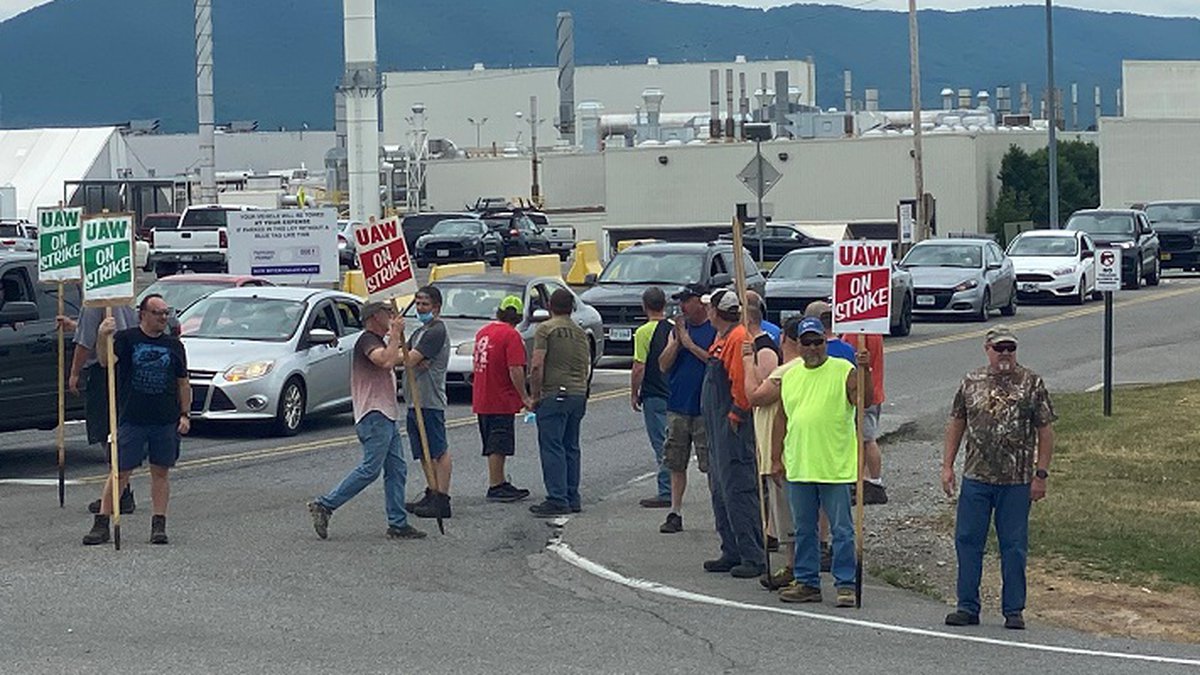Changes in the union leadership in both the U.S. and Canada will have a different cast next year as bargainers begin negotiating new contracts at General Motors, Ford and Stellantis, which grew out of the merger of Fiat Chrysler and PSA Group.
Changing technology brought on by the drive toward electrification is among the issues that will be on the table in 2023, says John Russo, visiting scholar at Georgetown University’s Kalmanovitz Initiative for Labor and the Working Poor and co-editor of Working-Class Perspectives.
Meanwhile, the UAW continues to grapple with the fallout from the scandal that led to prison time for a dozen union officials and officers, including two past presidents. Only last week, another union official pleaded guilty to stealing nearly $2 million in dues money to help cover his gambling debts. The UAW since May 2021 has operated under the supervision of a court-appointed monitor who has the power to oversee union operations, investigate possible fraud or corruption within the union, and to impose discipline on UAW officers and members.
Two experienced UAW negotiators, Cindy Estrada, who was the top union negotiator at GM in 2015 and FCA in 2019, and Terry Dittes, who led the UAW’s GM Dept. through a bitter 40-day strike in 2019, are planning to retire.
Dittes is approaching the UAW’s traditional retirement age of 65, but Estrada, the first woman to hold a top negotiator’s post, could have stood for re-election as union vice president. However, the UAW’s internal political structure is being turned upside down by passage of a referendum requiring that all top offices on the UAW executive board be filled by a vote of the rank-and-file.
The vote for top officers, including the president and vice president, won’t be scheduled until after the UAW’s next constitutional convention in July.
Union President Ray Curry and Chuck Browning, the head of the Ford Dept., are expected to run for re-election after the union constitution is re-written this summer, but both are likely to face insurgents calling for more reforms inside the union and in contracts with employers.
During 2021 negotiations both Curry, at Volvo Truck, and Browning, at Deere & Co., felt the heat from the rising militancy among UAW members when the tentative agreements they negotiated were rejected multiple times before finally being accepted only after lengthy strikes (pictured, below).

For the first time in several years, GM, Ford and Stellantis will negotiate new labor pacts in both the U.S. and Canada. When they negotiated the Canadian contracts in 2020, leaders of Unifor – which succeeded the Canadian Auto Workers union –pushed to have their contracts settled at the same time as those in the U.S., hoping to insure more leverage over new automaker investment.
Jerry Dias, the architect of the strategy, retired from the Unifor presidency and faces charges after an internal investigation alleged he took money from a supplier of COVID-19 tests. Dias’ replacement will be selected in August, Unifor says.
The automakers are declining to comment on the status of their relations with the UAW and Unifor except for perfunctory statements saying they value their good relations with the unions.
They also note UAW members are benefiting from their profitability. Profit-sharing checks for 2021 averaged $7,377 at Ford, a record $14,670 at Stellantis and $10,250 at GM, according to information from the companies and the union.
But tensions are evident.
The profit-sharing checks have not silenced criticism of the low starting pay and tiered wages that remain part of 2019 contracts, and the lack of cost-of-living adjustments.
The UAW also was quick to push back after top executives at Ford and Stellantis complained about absenteeism during the pandemic.
The impact of inflation on weekly paychecks is bound to be a major factor in next year’s negotiations, just as it was during the 1970s, says Georgetown’s Russo. He notes the very structure of the current contracts, which provide minimal raises and one-time bonuses in lieu of an annual raise, leave workers vulnerable to inflation even with profit sharing, which varies from year to year.
The shift in technology, particularly the industry’s drive to electrification as well as other changes in technology, is increasing the sense of insecurity among workers, Russo adds. Micky Bly, head of propulsion systems at Stellantis, acknowledges the company will soon have excess capacity at two Detroit-area engine plants.
Even though new vehicles are in short supply and inventories of unsold vehicles will remain tight into the 2023 contract year, according to Cox Automotive, manufacturers have idled workers.
The sense of impermanence makes the work less far less attractive to younger people than it was one or two generations ago, Russo notes. The insecurity also makes it harder for employers to retain workers. “It’s the same reason a lot of people don’t go into the construction industry,” he says. “You are not certain there is going to be secure employment.”
Curry, during an appearance at the Automotive Press Assn. in Detroit, says the UAW will begin formulating its demands next fall when bargaining committees are selected. He would not comment further. However, a discussion around EVs is certain to be more intense than it was in 2019 and the union will continue to push for the elimination of tiered wage systems that pay new hires less than those with more seniority, Curry says.





